Editor’s Note: This article contains possibly triggering quotes regarding sexual violence.
Since May 1, students, faculty, and community members have built and expanded an encampment in protest of the ongoing genocide of Palestinians in Gaza and the UC’s investment in Israel and the military-industrial complex. Administrators have stated that the protest is unlawful and some students are facing interim suspension.
Since the establishment of the encampment, students involved “have been threatened with punitive repercussions by administration,” according to a statement that Associated Students released on Instagram.
Leticia Guzman, UCSD student and Assistant Vice President of the Office for Equity, Diversity, and Inclusion for A.S., received notification of her interim suspension on May 2. On May 5, her predecessor in the role, Cristian Fuentes Hernandez, received the same notification. The emails informed the students that the administration had received information that they were present at “the encampment that violates university policy.”
The emails further stated, “The information described above, if true, provides cause to believe that your continued presence at UC San Diego is reasonably likely to lead to physical harm to any person or property, threats of violence, conduct that threatens the health or safety of any person, or other disruptive activity incompatible with the orderly operation of the campus.”
As far as Guzman knows, herself and Fuentes Hernandez are the only students who’ve been notified of disciplinary action thus far. She said that she considers the decision to suspend students involved in A.S. as “strategic” and targeted.
“It’s a retaliation of a specific demographic, we have that connection with administration … We’re the first line of defense for students, we’re a direct channel,” she said, referring to herself and Fuentes Hernandez.
Fuentes Hernandez added that “Student Affairs claims to be ‘student centered,’ but going out of their way reporting students is not very student centered.”
Chancellor Pradeep Khosla released a message to all students, staff, and campus employees addressing the encampment on May 1. While emphasizing UCSD students’ right to peacefully protest, the message noted that the activity “is in violation of campus policy, which prohibits unauthorized encampments.” The message also stated that “police and security teams are onsite to ensure safety and the continuation of campus operations.” It concluded with a reminder that individuals in violation of university policy or the law could face “interim suspension, suspension, dismissal, or legal action.”
On May 5, at 2:48 p.m., Khosla sent out a second email, this time stating that the encampment had become “dangerous” and calling on participants in the encampment to “peacefully disperse.”
“As time passes, the threat and potential for violent clashes increases,” the email read.
An anonymous protestor told The UCSD Guardian that the administration “is not willing to negotiate unless the camp is dismantled.”
“The part about dispersal in [Khosla’s] email implies the threat of being swept,” they said.
At 4:54 p.m. the same day, Students for Justice in Palestine at UCSD released a statement in response to Khosla’s email on the current state and growth of the encampment.
“UCSD has allowed its students to be threatened, harassed, and filmed for 4 days and has not intervened once to protect us,” the statement read. “All administrative and police action has demonstrated that their priority is to protect white supremacist and violent non-students over UCSD’s own Arab and Muslim student community.”
The statement continued, “The organized student leadership is ready at any time to discuss our demands. The camp could be dispersed tomorrow if UCSD would fully divest from the genocidal apartheid regime.”
At approximately 3:00 p.m. on May 5, a group of pro-Israel counter-protestors gathered at the end of Hopkins Lane to take part in a “Pro-Israel Solidarity Rally.”
Before counter-protesters arrived, leaders within the encampment reminded their peers to not engage, stating that “a conversation requires two people.” As the counter-protesters traveled along Library Walk, protestors linked arms and held up signs in support of Palestine.
Counter-protesters carried Israeli and American Flags, chanting phrases including “Bring them home,” “USA,” and singing the American national anthem. The demographics of the counter-protesters differed from that of those at the encampment protest, with the former including a larger number of older individuals, families, and children.
The counter-protesters stopped directly in front of the encampment, leaving almost no space between the two sides. Several counter-protesters took photos and videos of student protestors and bystanders.
Both sides recited competing chants; encampment protestors chanted “Free, Free Palestine,” counter-protestors chanted “from Hamas” in response.
Administrators and police encouraged distance between the two groups in an attempt to minimize conflict and maintain a clear path down Library Walk. Counter-protestors walked away and gathered in front of Target, where a member from Tritons for Israel spoke.
At 3:51 p.m., the counter-protestors walked past the encampment again and gathered in front of Geisel Library, where they continued chanting and dancing until approximately 4:40 p.m., when they dispersed.
After most of the counter-protesters left, an organizer from the encampment spoke to supporters inside and outside of the encampment.
“We have successfully defended our liberated zone … through our unity to defend our freedom,” they said.
Since the establishment of the encampment on Wednesday, there has been an increase in reports of harassment and threats received by Middle Eastern and Muslim students. According to the SJP statement released on Saturday, “Arab and Muslim students who are outside of the Encampment have encountered harassment, threats, and privacy invasion.”
An anonymous student reached out to The Guardian with video evidence of an instance of harassment that occurred outside of Hopkins Parking garage on the night of Friday, May 3. The person was wearing a keffiyeh when the person approached them in a car.
“Go get raped in Gaza,” the harasser said in the video. The person also made racist and Islamaphobic remarks to the student and surrounding individuals. Additionally, the person allegedly threatened gun violence against the individuals present, which was not recorded in the video.
“The funniest part of the whole situation is that there was a security guard outside of Hopkins like 2 feet away that heard the whole thing and the comment about shooting and did not do anything to stop him,” the student said.
On Saturday, May 4, at 4:54 p.m., following the expansion of the camp by nearly double that morning, police escorted fire marshals to the encampment, accompanied by UCSD administrators. The group attempted to enter the encampment to conduct inspections, according to a statement SJP later posted on Instagram. In response, protestors gathered near the camp entrance, chanting. Soon after, administrators and police walked away from the encampment entrance and moved toward Target.
On Friday, May 3, student organization Jewish Voices for Peace at UCSD, in collaboration with Jewish Voice for Peace San Diego, hosted an “anti-Zionist Shabbat.” Earlier that evening, Tritons for Israel held their own Shabbat service in Price Center Plaza, across from the encampment. Additionally, that afternoon, protestors held a “Gaza Solidarity Press Conference,” where various speakers in support of the movement shared messages of solidarity with the crowd.
On May 2, five of UC San Diego’s college councils sent out a letter in support of students’ right to free speech on campus in response to the Gaza Solidarity Encampment. Initial signees included council leaders from Revelle, Muir, Marshall, Warren, and Eleanor Roosevelt colleges. The college councils of Sixth and Eighth colleges expressed support for the statement later that night.
At 6:33 p.m., the Office of Resource Management and Planning sent out a campus-wide email announcing the cancellation of UCSD’s annual Sun God Festival. Many students were left frustrated, seeing the cancellation as an attempt to divide students.
Upon establishing the encampment, organizers from SJP published a set of four demands. The first, “Break the Silence,” calls for UCSD to condemn the genocide and call for a ceasefire. The second urges amnesty for all involved in the encampment, while the third asks UCSD to break all ties with Israel-affiliated organizations, including the U.S. Department of Defense, any private defense contractors, and companies named complicit in the BDS movement. The final demand calls UCSD to “Divest from Death,” or divest all of their financial holdings from Israel-related entities.
SJP explained the purpose behind the encampment in an Instagram post on May 1.
“There is no ‘time, place, or manner’ while Israel continues to escalate its genocidal assault on the 1.4 million Palestinians packed in Rafah and its surrounding makeshift cities,” the statement read. “Now, more than ever before, we must rise together in solidarity to demand an end to this U.S.-backed genocide, and UCSD’s complicity in human rights abuses and war crimes against the Palestinian people.”
Each day, SJP has created a program schedule for participants, including meals, prayers, teach-ins, and other activities. Throughout the first few days, minimal counter-protesting activity occurred, and encampment activity remained entirely peaceful.
This article was last updated at 11:07 p.m. on Sunday, May 5. This is a developing story. For more updates and detailed coverage, visit The UCSD Guardian website.
The following staff members were involved in reporting for this article: Raymond Tran, Vivian Dueker, Carter Castillo, Kaitlin Lee, Elise Jonas-Delson, Hana Tobias, Thomas Murphy, Natalia Montero Acevedo, Xuan Ly, Kamiah Johnson, Kurt Johnston, Alexander Olsen





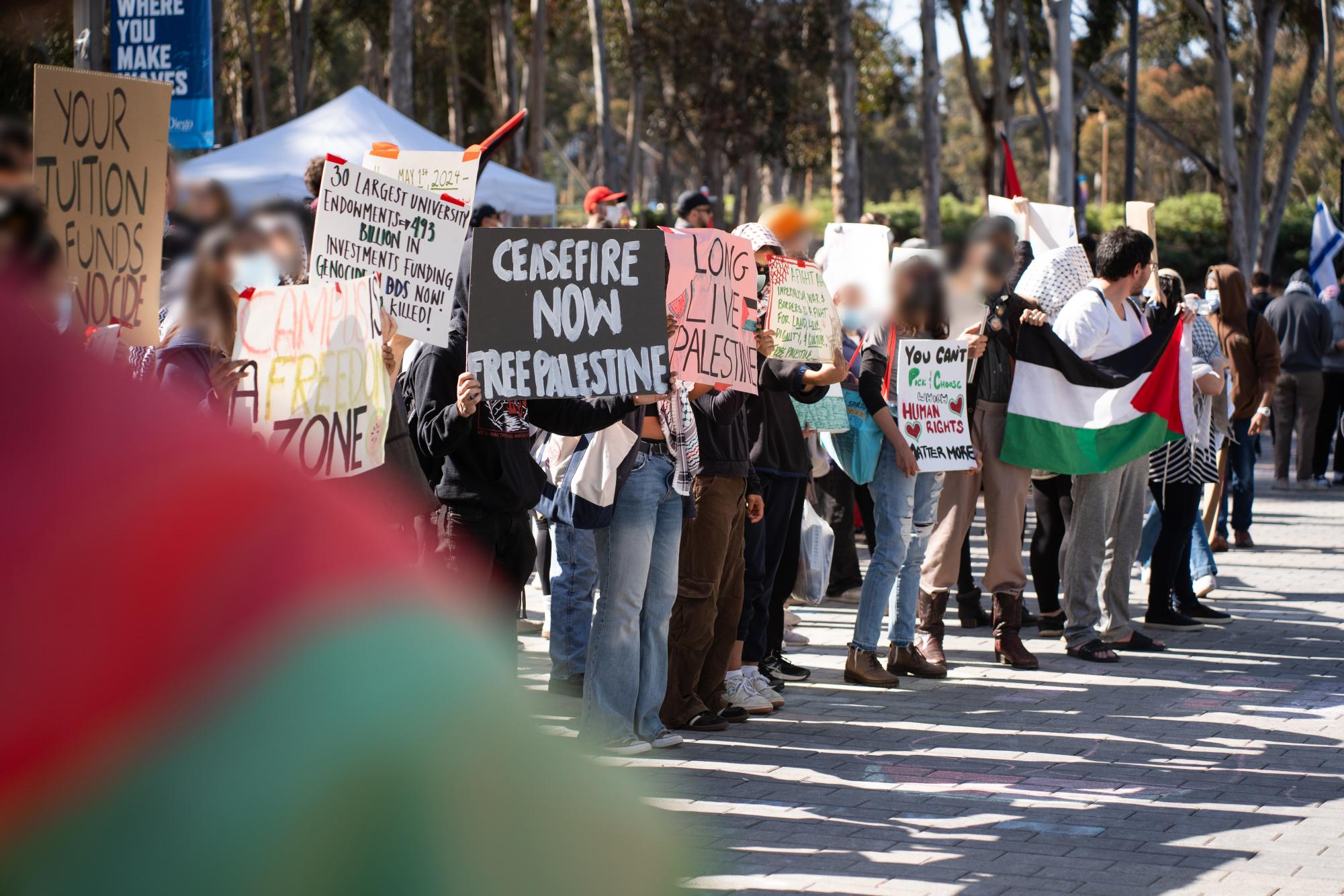
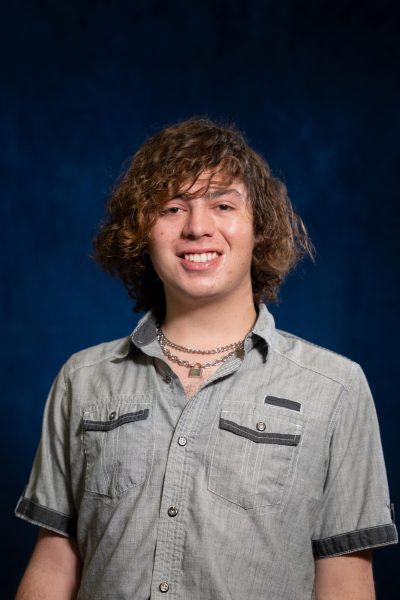
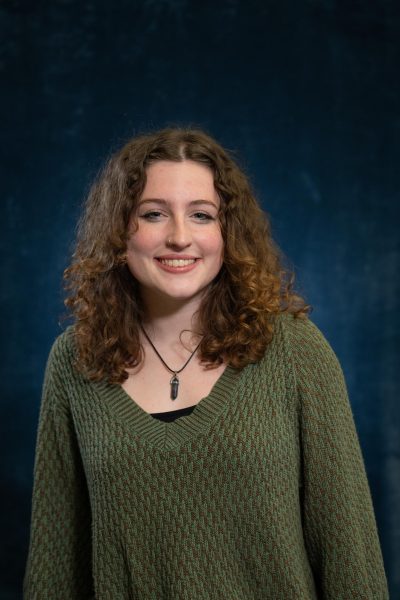
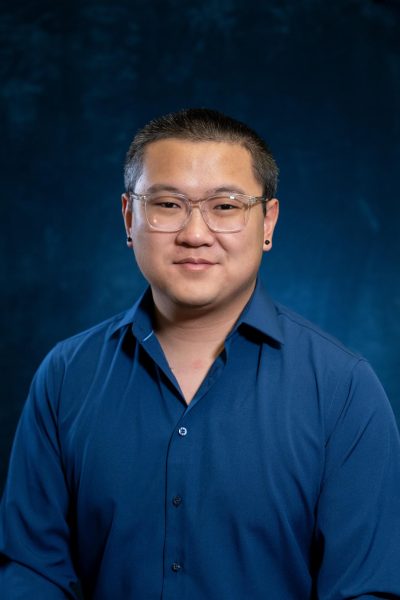
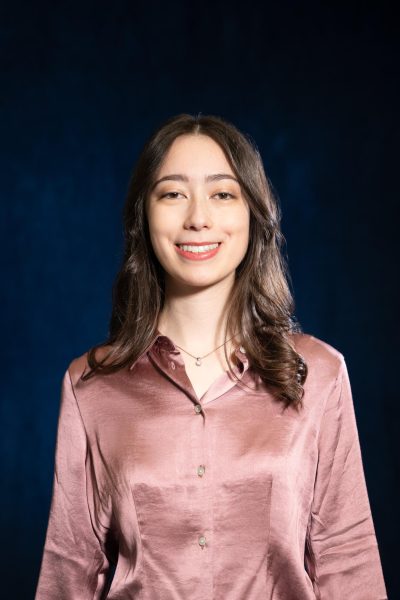
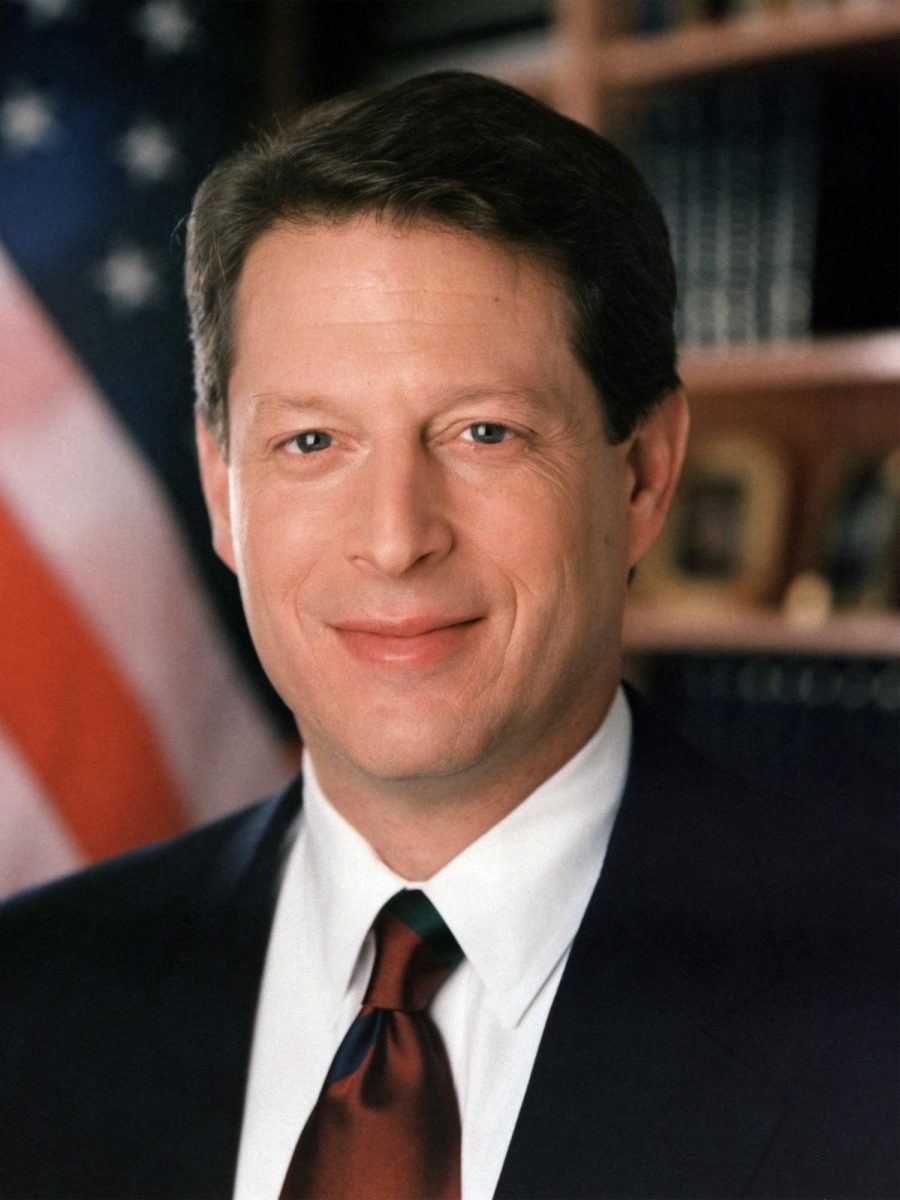
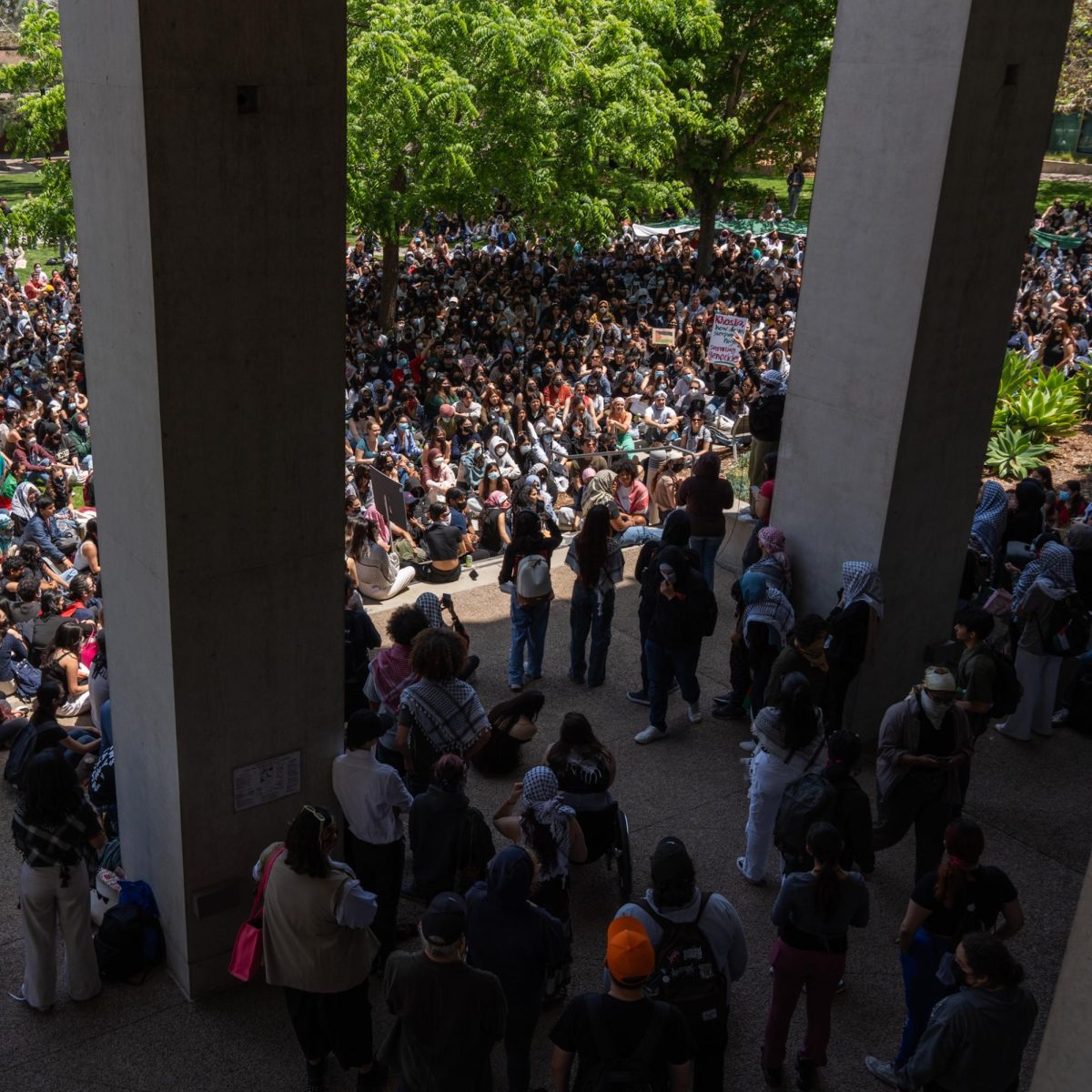


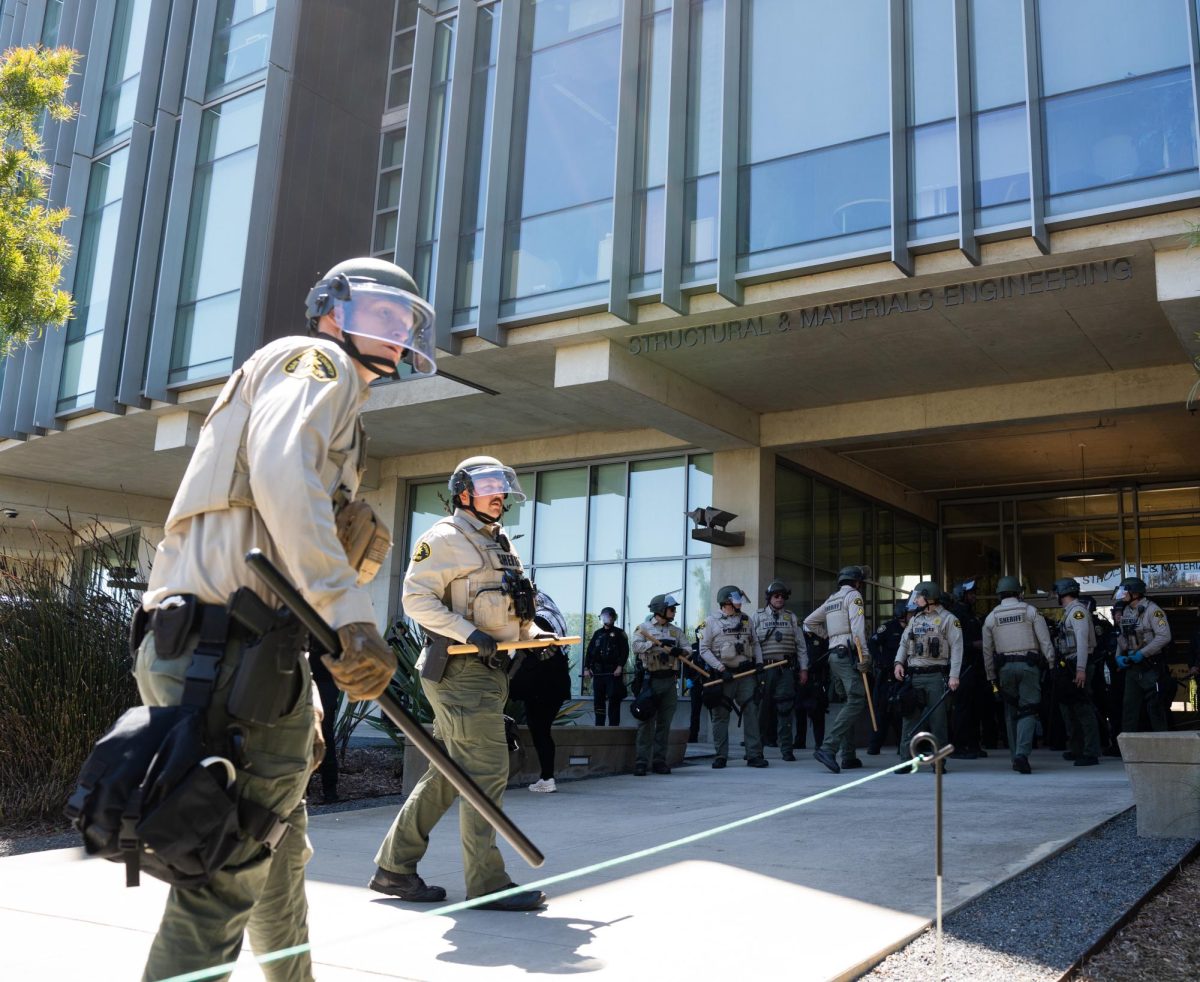
E Mukamel • May 7, 2024 at 9:54 pm
Why does this news article quote sources from only one perspective? This is not balanced journalism
Julie • May 6, 2024 at 8:22 am
I have a problem with the language in this article, not very journalistic of you, do better, inappropriate and wrong if you to refer to a genocide happening, do better, check your facts, you are embarrassing yourselves